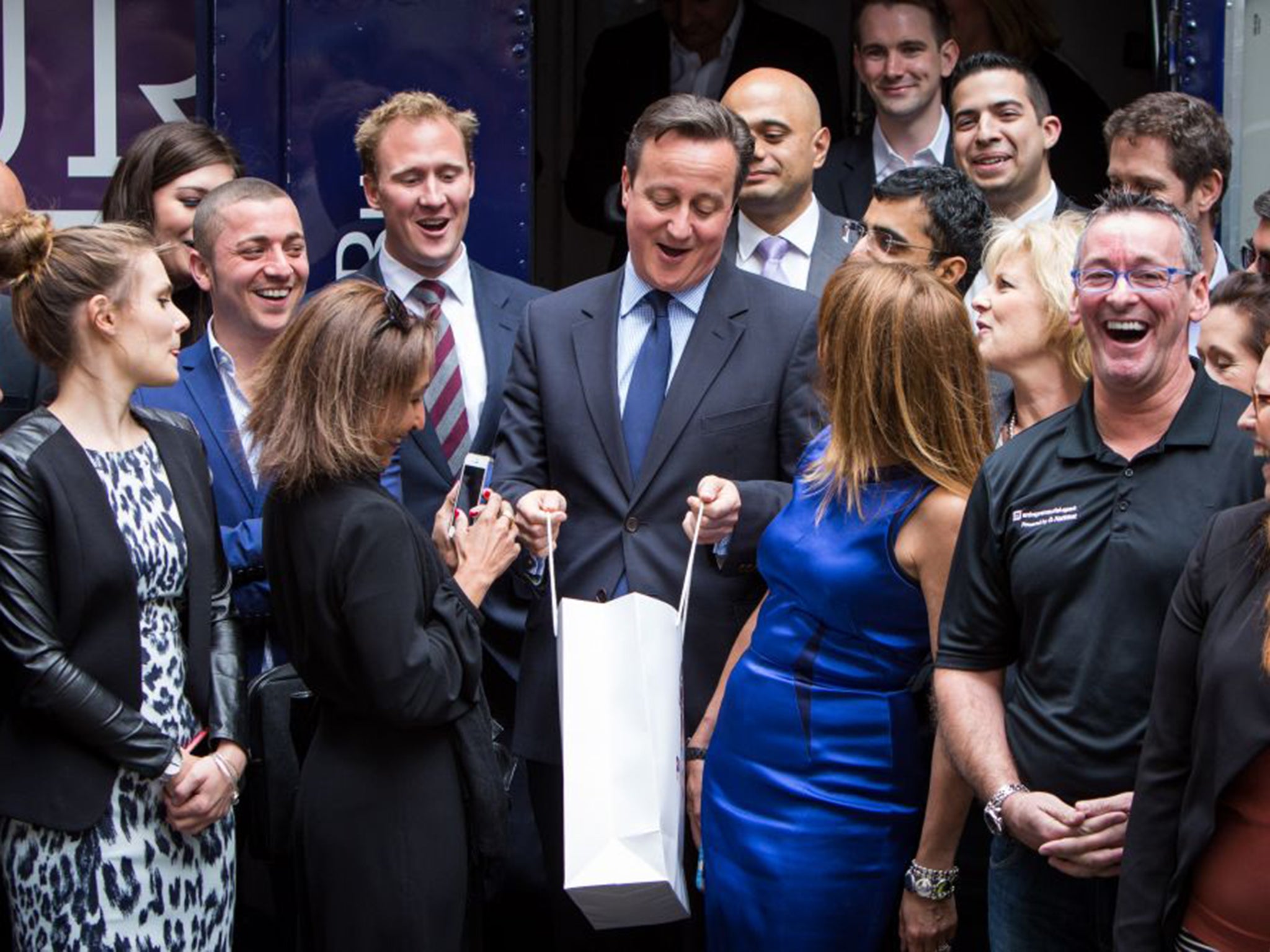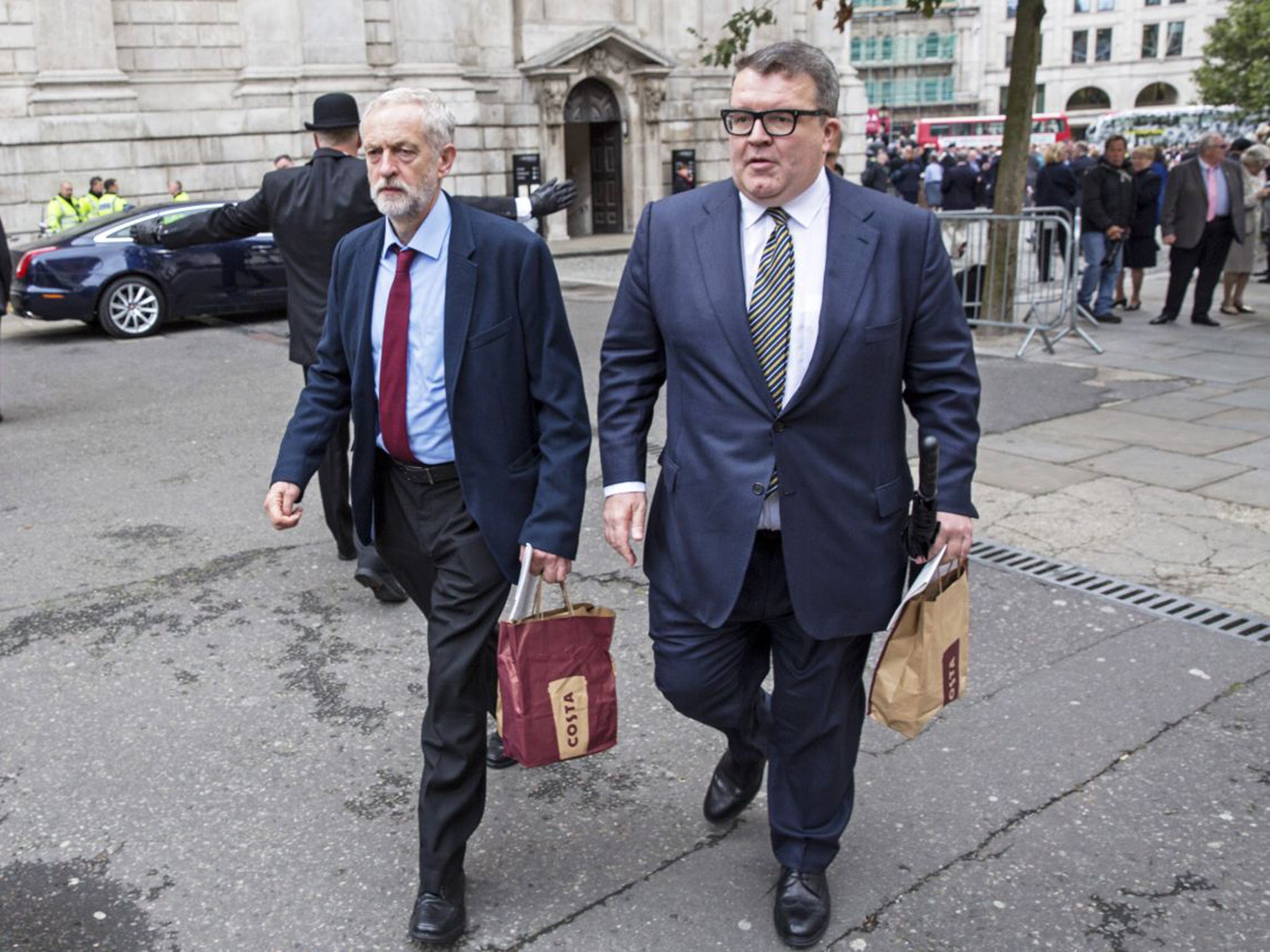Whitehall failing to disclose gifts and trips accepted by ministers, despite David Cameron's pledge
Not a single department has met the PM’s 2011 pledge to publish details on hospitality and gifts

Your support helps us to tell the story
From reproductive rights to climate change to Big Tech, The Independent is on the ground when the story is developing. Whether it's investigating the financials of Elon Musk's pro-Trump PAC or producing our latest documentary, 'The A Word', which shines a light on the American women fighting for reproductive rights, we know how important it is to parse out the facts from the messaging.
At such a critical moment in US history, we need reporters on the ground. Your donation allows us to keep sending journalists to speak to both sides of the story.
The Independent is trusted by Americans across the entire political spectrum. And unlike many other quality news outlets, we choose not to lock Americans out of our reporting and analysis with paywalls. We believe quality journalism should be available to everyone, paid for by those who can afford it.
Your support makes all the difference.David Cameron’s promise of a “revolutionary” new era in political transparency that would “open up Whitehall” and give voters the “power of information” has failed to materialise.
An examination of official data by The Independent on Sunday, which looked at every government department’s most recent disclosure of meetings, gifts, hospitality and overseas travel accepted by ministers, has found that since March this year, not a single department has met Mr Cameron’s 2011 promise to provide full quarterly information.
The poor performance on disclosure is most pronounced at three ministries, the departments of Health, Justice and Northern Ireland, which have failed to publish any information this year. The Department of Health last released information in December 2014; the Justice Ministry last published any details in July last year and the Northern Ireland Office lodged its last cache of information almost 18 months ago.

The failure to provide transparency across Whitehall makes a mockery of the Prime Minister’s promise four years ago that “information is a national asset, and it’s time it was shared”. Mr Cameron said the coalition government would oversee “a complete revolution in transparency” that would have a “profound impact” with information “helping us mend our economy.”
Tom Watson, Labour’s deputy leader, said Mr Cameron’s broken promise on the issue would “yet again weaken the public trust in politics”.
This week Labour is expected to ask No 10 to make a statement in the Commons explaining why the transparency promises have been sidelined. Although sensitive or politically awkward data could be buried in the holiday period, Labour says all ministries should nevertheless meet the transparency requirements, to prove they have nothing to hide.
Failure to deliver transparency will only heighten fears that senior cabinet ministers are seeking to weaken Freedom of Information (FOI) laws to make it harder for the public to scrutinise legislation.

Mr Watson said : “The Prime Minister used to say that sunshine is the best disinfectant. But his latest broken promise will make people wonder what exactly he’s trying to hide.”
Under Mr Cameron’s 2011 pledge, ministers were required to give quarterly disclosures of ministerial meetings held with organisations outside each government department. Gifts worth more than £400 had to be registered and listed for public access. Details of hospitality and overseas travel were also supposed to be available for scrutiny.
One example of the disclosure lapses concerns a meeting between George Osborne and Rupert Murdoch. The Chancellor’s meeting with News Corp’s global boss took place in June just before a £650m budget cut was imposed on the BBC.
Details of the meeting were published in The Independent, with Downing Street at the time offering assurances that any such meeting would be listed in the Treasury’s quarterly disclosures. So far, no confirmation has been listed.
Mr Watson said: “The public will wonder if ministers are just trying to cover up meetings with big businesses and hedge funds who donated to their election campaign. The PM needs to apologise to voters and release this data immediately.
“The whole point of transparency data is to ensure we know who is influencing government policy.”
Last month, the chairman of the independent commission of Freedom of Information, Lord Burns, announced possible changes to FOI rules which included the introduction of charges.
Join our commenting forum
Join thought-provoking conversations, follow other Independent readers and see their replies
Comments